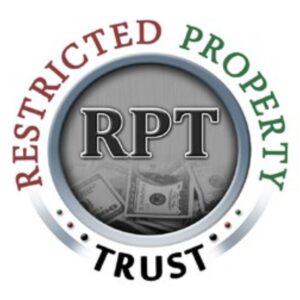Revealing the Strength of Restricted Property Trusts: A New Era in Strategic Asset Management
Revealing the Strength of Restricted Property Trusts: A New Era in Strategic Asset Management
Blog Article

In the ever-changing financial planning world managing assets strategically is essential for maintaining and growing wealth. Restricted Property Trust have emerged as a potent tool to enhance the strategic management of assets by providing unique advantages for safeguarding and optimizing assets.
Understanding Restricted Property Trusts
Restricted Property Trusts financial structures designed to manage valuable assets under specific conditions. Unlike conventional trusts, RPTs restrict the access, use or transfer of the assets they hold. The restrictions are designed to enhance protection and management of assets, which makes RPTs an invaluable tools for managing assets.
Key Advantages of Restricted Property Trusts
1. Improved Protection Against Risks One of the best features in RPTs is their capability to shield assets from potential dangers, like lawsuits, claims from creditors as well as other financial risks. By placing assets into an RPT, you build an asset buffer that shields your wealth from unforeseen challenges, ensuring that your assets are safe.
2. Effectiveness and benefits of taxation: RPTs can provide substantial tax benefits that could enhance your overall financial strategy. Trust contributions may be eligible for tax deductions and trust income will benefit from tax-efficient treatment. This can lead to substantial tax savings as well as optimize the growth of your assets over time.
3. Strategic Estate Planning: RPTs play a crucial role in effective estate planning. They allow people to distribute assets among beneficiaries and maintain control over the manner and timing these items are divided. This does not only simplify the process of estate planning, but aids in reducing estate taxes and avoids the issues of probate.
4. Customizable Asset Management: Despite the limitations imposed RPTs allow a great level of flexibility in managing assets. Trustees can receive detailed instructions on asset management, ensuring that your financial objectives and the plans of your past are fulfilled. This can be customized to allow you to be strategically aligned with your financial goals.
Implementing an RPT
The process of setting up the Restricted Property Trust involves careful planning and consultation with legal and financial experts. These professionals can help design an RPT that aligns with your specific needs and goals. The trust documents will detail the restrictions, conditions and obligations that are associated in the property, ensuring an organized method for managing assets.
Regular reviews and periodic updates to the RPT could be required for you to keep up with changes in your financial situation or goals. This continuous management will ensure that the trust will continue to fulfill its purpose efficiently.
Conclusion
Restricted Property Trust offer a transformative approach to strategic asset management, providing greater security, tax efficiency and efficient estate planning. By leveraging the unique benefits that RPTs offer, you are able to protect your wealth, improve your financial strategy, and achieve your goals over the long term with greater confidence. Engaging with experienced experts is vital to customize the RPT to meet your needs, which will result in a strong and efficient asset management system. Make use of the power of Restricted Property Trusts and reach an entirely new level of strategic financial security and achieve success.
Report this page